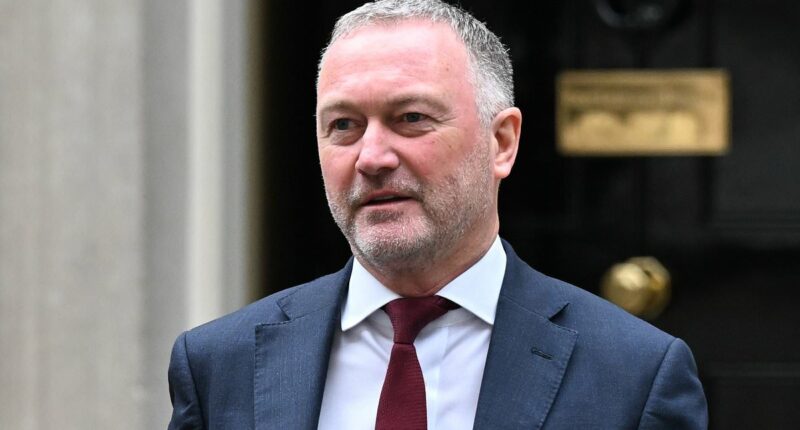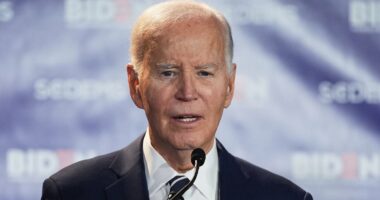Share this @internewscast.com
In a significant policy shift, the Labour Party has revised the language of an official definition concerning Islamophobia, citing worries over potential impacts on free speech. This development comes as part of the government’s ongoing efforts to tackle the increasing incidents of hate crimes targeting Muslims.
Earlier this year, ministers established a working group dedicated to formulating a comprehensive definition of Islamophobia or anti-Muslim hatred. The initiative aimed to address the troubling rise in hate crimes affecting the Muslim community.
However, the move to craft a legal definition of Islamophobia has faced criticism. Opponents argue that it might inadvertently lead to the creation of blasphemy laws, thereby stifling open discourse on topics like Islamic extremism.
In light of these concerns, the government’s working group has decided to shift its focus. According to reports from The Telegraph, the group is now concentrating on defining the term “anti-Muslim hate” instead of Islamophobia.
Leading the review is former Conservative minister Dominic Grieve, who has steered the discussion away from the contentious terminology of ‘Islamophobia’ and ‘Muslimness.’ This adjustment reflects a nuanced approach to balancing the protection of the Muslim community with the preservation of free speech.
The review of the definition, led by former Conservative minister Dominic Grieve, is said to have moved away from using the words ‘Islamophobia’ and ‘Muslimness’.
New wording will aim to define hatred towards Muslims, but also protect free speech, the newspaper reported.
Crossbench peer Baroness Gohir, one of the experts on the working group, said she expected the public to be ‘pleasantly surprised’ when the review concludes.

Communities Secretary Steve Reed is reported to have received the final wording of the new definition to make a decision on it
Lady Gohir, who is also chief executive of the Muslim Women’s Network UK, added: ‘I expect those who opposed the already existing definitions for being too vague, or because they felt these prevented criticism of Islam or debate of other issues of concern to them, will want ministers to adopt ours, as I believe it resolves those concerns.’
She also warned that if the group’s wording is not adopted, the current ‘problematic’ definition will continue to be used.
While in opposition, Labour adopted a definition of Islamophobia – as drawn up by the All-Party Parliamentary Group (APPG) on British Muslims – into its code of conduct of party members.
This said Islamophobia is ‘rooted in racism and is a type of racism that targets expressions of Muslimness or perceived Muslimness’.
But the APPG definition was rejected by the previous Tory government who said the wording needed ‘further careful consideration’ and had ‘not been broadly accepted’.
Tory MP Claire Coutinho, the shadow minister for equalities, hit out at the ‘secrecy’ over the new definition being drawn up by the Government’s working group.
She said: ‘In the weeks after an Islamic terror attack that saw two Jewish people killed, and just after Muslim Vote MPs campaigned to ban Israeli football fans from Aston Villa, we need to acknowledge that this definition risks having a chilling impact on our public sector bodies at exactly the wrong time.
‘The whole process has been characterised by secrecy. They’ve tried to cook this up behind closed doors with radical activists, some of whom previously said that even talking about the grooming gangs was an example of anti-Muslim racism.
‘They must publish this proposed definition and the responses from the public consultation they were forced into.
‘Anti-Muslim hatred, like any form of hate, has no place in Britain. However, we cannot silence legitimate debate.’
A spokesman for the Ministry of Housing, Communities and Local Government said: ‘We do not comment on leaks.
‘The department is carefully considering the working group’s recommendations, and no decisions have been made.
‘We will always defend freedom of speech, including fiercely protecting the right to criticise, express dislike of, or insult religions and the beliefs and practices of those who follow them.
‘This will remain at the front of our minds as we review the definition.’
When the working group was launched at the end of February, it said it aimed to deliver a new definition within six months.
Communities Secretary Steve Reed is reported to have received the final wording of the new definition to make a decision on it.

















